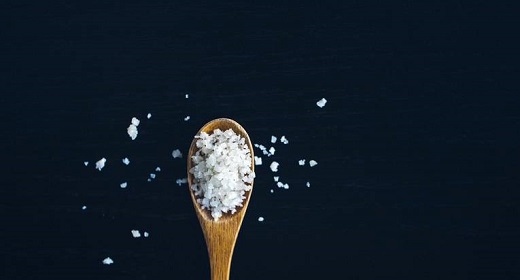by Katherine Martinko: These ingredients are worth the extra money…
 My idea of a fun shopping trip is going to the grocery store. Give me the well-stocked aisles of an interesting grocer any day over a mall, or even the beautiful boutiques of a fashion district. Forget clothes – I just want to look at food and dream of all the delicious things they could become in my kitchen.
My idea of a fun shopping trip is going to the grocery store. Give me the well-stocked aisles of an interesting grocer any day over a mall, or even the beautiful boutiques of a fashion district. Forget clothes – I just want to look at food and dream of all the delicious things they could become in my kitchen.
Of course there’s no way that I can afford to buy all the foods I want to buy, so I’ve learned over the years to refine my tastes and splurge only on the items that offer the most value. What follows is a list of those foods I now prioritize when shopping, and why I think they matter so much.
1. Olive oil
I use olive oil constantly – for frying eggs at breakfast, making salad dressings and homemade mayonnaise, mixing marinades and vinaigrettes, even baking things like zucchini or carrot muffins and granola. I’ve done enough research to know that buying high-quality, extra-virgin olive oil makes a difference in flavor and health value because it has not been adulterated by cutting with other oils. So I asked my Greek friend, whose parents owns an olive grove in northern Greece, which olive oil brand she buys at our local grocery store, and that’s the one I now buy too (unless she has a shipment of oil from her family, in which case I buy a 20-liter jug from her). She said she’s tried them all and one is better than the rest, so I buy it in the largest quantity I can.
You could also go to a local fine food store and ask for professional guidance if you want it:
“The more specifics on the bottle, the better. Always go for extra-virgin because, without it, you’re certain to get a lower-grade product. Third-party certification is a good sign too. Look for a place of origin, location of pressing, or the name of an estate or producer. This additional information means it’s more likely to be genuine. From Epicurious’ guide to spotting fake olive oil, ‘Getting even geekier, if you see the free fatty acidity level, or FFA, listed (which you probably won’t with mass-market brands), that’s a great sign. Typically, only high-quality producers bother listing it. An excellent oil will have an FFA of 0.2 percent or lower.'”
2. Nuts
I used to balk at the sky-high price of nuts until I stopped eating so much meat and realized I could justify nuts as a fatty, plant-based protein replacement that costs even less. For example, if I have nuts on hand to embellish a grain bowl, I’m not as inclined to buy a can of fish or a piece of meat. Nuts are the ultimate snack food – non-messy, satisfyingly crunchy, and wonderfully satisfying. When I have nuts in the pantry, and it doesn’t matter what kind – almonds, pistachios, pecans, cashews, macadamias – I crave less junky foods as mid-afternoon pick-me-ups, so I figure the investment is worth it.
3. Dried fruit
High-quality dried fruit is utterly delicious, but it’s expensive. I’m not talking about the puffy, soft, sickeningly sweet pieces of pineapple and strawberry in the snack aisle, but the leathery, chewy, no-sugar-added, organic mango and coconut pieces that you get in the health food section. Every time I buy it, the price tag causes me a small bit of pain, but then I remind myself that it’s replacing junkier snacks and has far more nutritional value than, say, a bag of Cadbury Mini Eggs (which I’ve been known to inhale on occasion). My kids like it, too, and it’s a great minimal-waste snack for their lunches. (There is no brand affiliation here, but I’d like to say that my absolute favorite dried fruit comes from Level Ground.)
4. Salt
I started using kosher salt years ago because my mother did, but it wasn’t until I read Samin Nosrat’s famous book, Salt Fat Acid Heat, that I understood why it’s so great. Kosher salt offers the purest salty flavor (no metallic taste given by iodized table salt), and its large thin flakes dissolve more quickly than densely-packed tiny grains. This means you’re “less likely to overseason a a dish, thinking it needs more salt when actually the salt just needs more time to dissolve.” A box of kosher salt is considerably more expensive than regular table salt, but worth the investment.
5. Cheese
I’ve had unpleasant experienced buying the cheapest blocks Cheddar and mozzarella at the grocery store. They might look similar to the higher-end brands, but have a plastic-like texture and taste that neither I nor my kids like. So I pay more for a brand I know, keeping an eye out for sales and buying in bulk whenever possible. Cheese can be frozen, although freezing does make it crumblier afterward, but I’m willing to put up with that if it means a substantial discount. I also splurge on local, artisanal cheeses whenever I get to a good cheesemonger, but because there is none in my town, it probably saves me a ton of money!
6. Chocolate
I usually buy semisweet chocolate chips, rather than milk chocolate, because it’s a purer form of chocolate that can be used in a broader range of ways. I also like to buy bars of high-quality chocolate that I can eat as an occasional snack or chop up into cookies, ganache, or other desserts. Whenever possible, I pay extra to get Fairtrade-certified chocolate. After reading Canadian journalist Carol Off’s book, Bitter Chocolate: Anatomy of an Industry, I realized I didn’t want to complicit in children’s slavery to satisfy a chocolate craving.
7. Coffee
I love good coffee and I live two blocks away from a cute little coffee shop that makes fabulous lattes that cost $5 apiece. In order to nip that temptation in the bud, it makes sense to buy great coffee beans and make my own hot drinks, which saves me money by the 3rd or 4th cup – not to mention time and overall calories because I don’t make fancy lattes at home. I buy whole beans from a Canadian roaster that I like, always fair-trade and organic, and grind them as I use them.









































